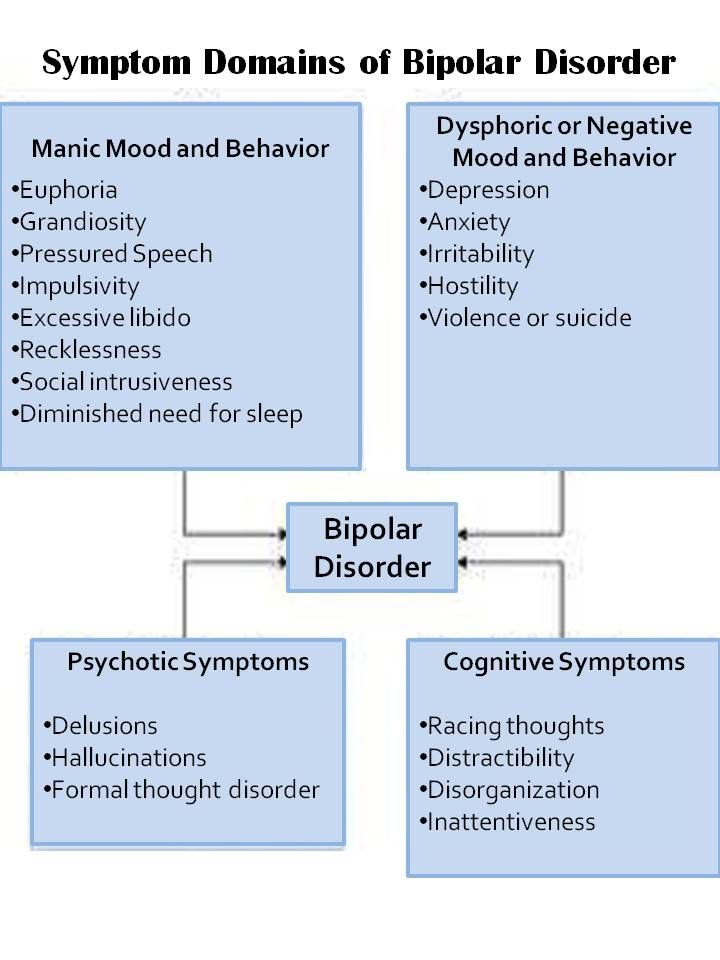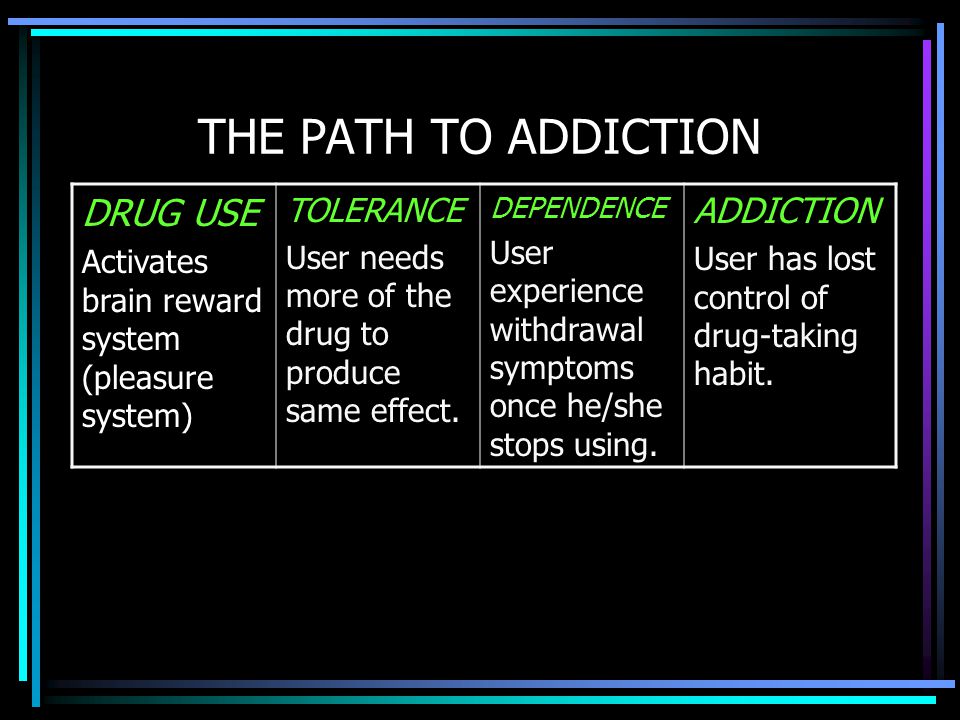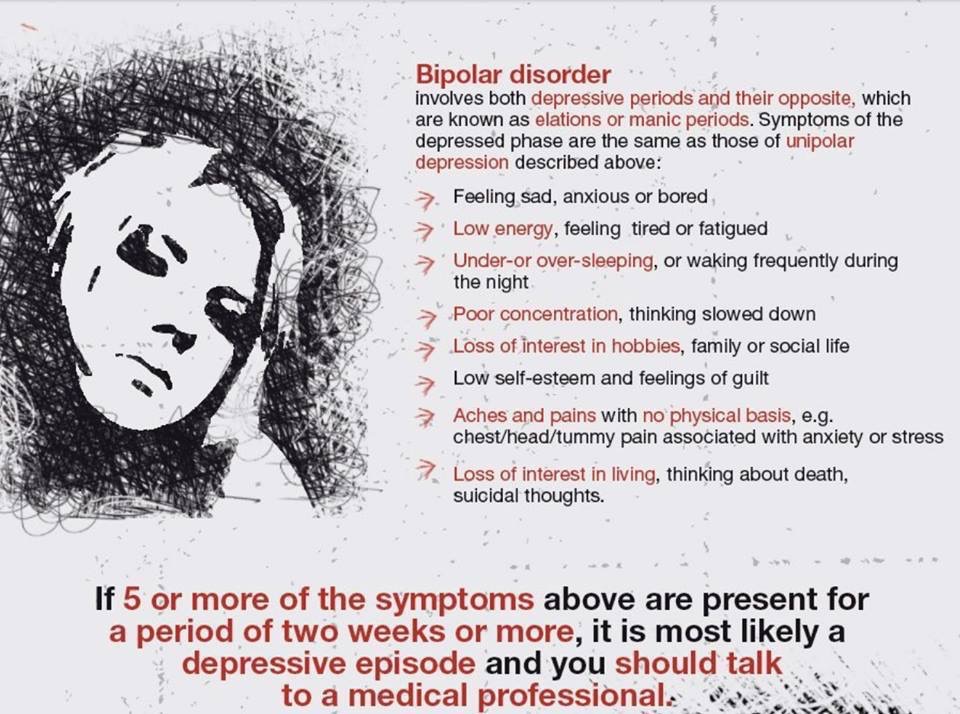How to recover from having an affair
Affair Recovery | How to get over cheating – Dr. Wyatt Fisher
I'm going to talk about the highly sensitive topic of affair recovery. Research shows around 50% of all marriages will experience infidelity on some level over the course of their relationship. In my private practice at least half of all the couples I work with are recovering from infidelity and they want help with "how to get over cheating." But before going further, let me define my terms.
What is affair recovery?
Affair recovery is the process of healing a relationship mentally, emotionally, and physically after it has experienced infidelity. Affair recovery usually takes anywhere from six months to two years and is often a painful process yet a possible one for couples who possess humility, compassion, and tenacity.
An affair can be anywhere from an emotional affair all the way to a sexual affair. The emotional affair is when you develop an inappropriately close emotional attachment with someone other than your spouse and that person becomes your best friend, your soul mate. You share everything with them and you start falling in love with them. With an emotional affair, it's usually just a matter of time before it turns sexual unless it's stopped. Obviously, a sexual affair is when there's sexual contact. Emotional affairs are usually more difficult to recover from instead of one night stands because of the attachment. In an emotional affair, a strong attachment has formed, which can be hard to break. In contrast, a one night stand often involves little to no attachment so is much easier to break.
All forms of affairs are highly traumatic to marriages across the globe. The number one thing that rocks the foundation of security in a relationship is infidelity. No matter what language you speak, no matter what color of your skin, no matter what ethnicity or cultural background, infidelity rocks the foundation of relationships like nothing else. The betrayed partner usually develops symptoms akin to PTSD, Post Traumatic Stress Disorder, because of the massive pain and loss of control. A lot of the symptoms can include intrusive thoughts, irritability, panic attacks, flashbacks, feeling numb to life, etc. The following steps are designed to help your relationship heal.
The betrayed partner usually develops symptoms akin to PTSD, Post Traumatic Stress Disorder, because of the massive pain and loss of control. A lot of the symptoms can include intrusive thoughts, irritability, panic attacks, flashbacks, feeling numb to life, etc. The following steps are designed to help your relationship heal.
Receive healing for your marriage here!
Step One- Cease all contact
The first step is you have to stop all contact with the person you've had the affair with. That may require a variety of things. Depending on your situation, this may include quitting your job, moving to a different neighborhood or state, changing churches, etc. You have to cut out all contact with the affair person because if you don't, the affair will linger. A lot of people are under the misconception that they can stop the affair but still be friends with the person or still see them once in awhile. That is impossible. An affair is an addiction. The feel good chemicals in your brain were low because of things going on in your life and your marriage. Then, this person came around and met your needs and flooded your brain with feel good chemicals, which turned them into an addiction. Just like any type of addiction, whether it's heroin or cocaine or whatever, if you get around it, you're going to fall back into it. Likewise with affairs. If you've had an affair with somebody, that person has become your addiction so if you come in contact with them on any level, most likely you're going to fall right back into the affair. In addition, each time you have repeated contact with the affair person it will retraumatize your spouse and all healing in your marriage will be lost.
Then, this person came around and met your needs and flooded your brain with feel good chemicals, which turned them into an addiction. Just like any type of addiction, whether it's heroin or cocaine or whatever, if you get around it, you're going to fall back into it. Likewise with affairs. If you've had an affair with somebody, that person has become your addiction so if you come in contact with them on any level, most likely you're going to fall right back into the affair. In addition, each time you have repeated contact with the affair person it will retraumatize your spouse and all healing in your marriage will be lost.
If you're the betrayed partner reading this and your partner won't end all contact with their lover, your first round of offense is to expose the affair to all your family and friends, which creates social pressure for your partner to end it. The intent is not to shame your partner but to have trusted family & friends confront them about their hurtful behavior to snap them back into reality. When you're in an affair, you often don't realize how devastating your behavior is because you're living a fantasy. If that social pressure doesn't make your partner end all contact with their lover, your next move should be separation with zero contact until your partner can prove they have no more contact with their lover. This is important for two reasons. First, it allows you to establish a boundary so you're not continually emotionally abused by your partner's ongoing contact with their lover. Second, it gives your partner a chance to see what life without you would be like. If after 3-6 months your partner still hasn't ended all contact with their lover then proceed with divorce.
When you're in an affair, you often don't realize how devastating your behavior is because you're living a fantasy. If that social pressure doesn't make your partner end all contact with their lover, your next move should be separation with zero contact until your partner can prove they have no more contact with their lover. This is important for two reasons. First, it allows you to establish a boundary so you're not continually emotionally abused by your partner's ongoing contact with their lover. Second, it gives your partner a chance to see what life without you would be like. If after 3-6 months your partner still hasn't ended all contact with their lover then proceed with divorce.
Also, it's important for the wayward partner to take an STD test in case they contracted something during the affair. It's important for the betrayed partner to go with them for the results to hear it firsthand. This should be required even if the wayward partner promises it was only an emotional affair and nothing physical happened. You don't want to take any chances. The only thing worse than recovering from an affair is also getting an STD from your partner because of their affair.
You don't want to take any chances. The only thing worse than recovering from an affair is also getting an STD from your partner because of their affair.
Step Two- Open all accounts
Step number two is you have to share all accounts and your phone with your partner to show you have no more contact with your lover. This is also recommended for couples where there's been no infidelity to foster trust and transparency. It communicates, I have nothing to hide. You have to voluntarily give your phone over whenever your spouse desires it. You've broken trust. To earn that trust back, you have to open up all accounts. Sometimes it can be tempting to have secret accounts. But if you really want your marriage to recover, there's no point in having any secrets. You have to turn it all over. It will help your betrayed spouse slowly start trusting you again because at this point your word means nothing. You've broken trust, you've lied. What you say doesn't matter. Your actions are what matters. Voluntarily opening up all accounts and sharing your phone with your partner will help them start to heal. They can't start the healing journey until they know you have no more contact with your lover. Practicing openness also helps the wayward partner because affairs thrive in secrecy. Therefore, if there's no opportunity for it to grow in secrecy it will eventually die.
Voluntarily opening up all accounts and sharing your phone with your partner will help them start to heal. They can't start the healing journey until they know you have no more contact with your lover. Practicing openness also helps the wayward partner because affairs thrive in secrecy. Therefore, if there's no opportunity for it to grow in secrecy it will eventually die.
If your partner refuses or is angry about sharing all accounts and their phone to prove they have no more contact with their lover remember the two steps of offense above. Expose the affair to all friends and family to create social pressure and if that's not enough for them to cooperate get a separation until they do. If your partner is angry or resistant about sharing everything with you it's probably because they are trying to stay in touch with their lover and don't want to end it.
One way to think about affairs is the person who steps outside the marriage and has the affair, that's 100% their fault. However, the climate in the marriage that made them susceptible to stepping outside the marriage is usually both partner's fault.
However, the climate in the marriage that made them susceptible to stepping outside the marriage is usually both partner's fault.
Step Three- Show remorse
Step three is you have to show sincere remorse. If you've had an affair then act indifferent toward the impact it's had on your spouse, recovery is not possible. You have to take ownership for how devastating this has been to your relationship. Even if you were unhappy, even if your needs weren't being met, you broke your vows to your spouse and betrayed them. Therefore, it's critical to take ownership for how much you have rocked the foundation of your marriage. Heartfelt remorse for having the affair is paramount. If you don't take ownership for the affair and aren't remorseful, it's going to be next to impossible for your partner to forgive you.
Step Four - Process the hurts
Step four is processing through your hurts, which may go both directions. Obviously the betrayed spouse is going to have a lot of hurt they'll need to express. But the wayward partner may also have hurts because perhaps one of the reasons they had the affair is their needs were unmet repeatedly for years despite their frequent complaints. So both of you need a method to get out your hurts. I teach couples a conflict resolution method called the reunite tool, which is a set of guidelines on how to keep conversations safe. When the hurt is not fully vented and released, it will come out in destructive ways through yelling, harsh comments, and contemptuous remarks, which will only make matters worse. Hurt people hurt people but that just damages the relationship further. So, having some type of method to work through your hurts constructively is key. You may need to work with a relationship coach to effectively do this.
But the wayward partner may also have hurts because perhaps one of the reasons they had the affair is their needs were unmet repeatedly for years despite their frequent complaints. So both of you need a method to get out your hurts. I teach couples a conflict resolution method called the reunite tool, which is a set of guidelines on how to keep conversations safe. When the hurt is not fully vented and released, it will come out in destructive ways through yelling, harsh comments, and contemptuous remarks, which will only make matters worse. Hurt people hurt people but that just damages the relationship further. So, having some type of method to work through your hurts constructively is key. You may need to work with a relationship coach to effectively do this.
Step Five- Discuss the details
People often wonder how much detail should be shared about an affair. Some betrayed spouses want to know every detail while others only want a summary. Usually the wayward spouse doesn’t want to share any details, so the betrayed spouse keeps asking for them, sometimes for years. Each time the affair gets brought up, it re-traumatizes the relationship. The betrayed spouse should be in charge of how much detail is shared, not the wayward spouse. However, remember the more detail you hear the more devastated you may become. Therefore, consider carefully how much information you need to know and why. Make a list of all the questions you have about the affair for your wayward partner. Some request their wayward spouse to answer the questions while connected to a lie detector test to increase the trustworthiness of their answers. That's a personal decision up to the betrayed partner. If you're the wayward partner, your job is to work much harder at healing the marriage than your spouse so if they request a lie detector test, do it! However, after the questions, both partners should agree not to bring up the affair any longer, excluding triggers, because each time it's brought up the marriage will suffer.
Each time the affair gets brought up, it re-traumatizes the relationship. The betrayed spouse should be in charge of how much detail is shared, not the wayward spouse. However, remember the more detail you hear the more devastated you may become. Therefore, consider carefully how much information you need to know and why. Make a list of all the questions you have about the affair for your wayward partner. Some request their wayward spouse to answer the questions while connected to a lie detector test to increase the trustworthiness of their answers. That's a personal decision up to the betrayed partner. If you're the wayward partner, your job is to work much harder at healing the marriage than your spouse so if they request a lie detector test, do it! However, after the questions, both partners should agree not to bring up the affair any longer, excluding triggers, because each time it's brought up the marriage will suffer.
Step Six- Manage triggers
Part of Post-Traumatic Stress Disorder (PTSD) is getting triggered. Those who have been in combat will often experience flashbacks of the horrors they went through. Those who have been through natural disasters will often experience flashbacks of the devastation they experienced. Likewise, those who have been betrayed by an affair will often have flashbacks of the pain they suffered. Therefore, learning how to manage triggers is important for all couples who have experienced an affair. When triggered, the betrayed spouse must avoid two extremes. The first is not mentioning the trigger and suffering in silence, which will make you withdrawal emotionally. The second is becoming verbally aggressive toward your partner, which will lead to conflict. The third and recommended approach is to express each trigger with your tender underbelly. The tender underbelly is the tender feelings underneath your anger, such as sad, hurt, insecure, fearful, etc. For example, a tender underbelly statement when triggered could be “I was watching a movie last night that involved an affair and it triggered me with your affair and brought up all the feelings of sadness, hurt, and fear.
Those who have been in combat will often experience flashbacks of the horrors they went through. Those who have been through natural disasters will often experience flashbacks of the devastation they experienced. Likewise, those who have been betrayed by an affair will often have flashbacks of the pain they suffered. Therefore, learning how to manage triggers is important for all couples who have experienced an affair. When triggered, the betrayed spouse must avoid two extremes. The first is not mentioning the trigger and suffering in silence, which will make you withdrawal emotionally. The second is becoming verbally aggressive toward your partner, which will lead to conflict. The third and recommended approach is to express each trigger with your tender underbelly. The tender underbelly is the tender feelings underneath your anger, such as sad, hurt, insecure, fearful, etc. For example, a tender underbelly statement when triggered could be “I was watching a movie last night that involved an affair and it triggered me with your affair and brought up all the feelings of sadness, hurt, and fear. ” The job of the wayward spouse is to respond with empathy, an apology, and reassurance, such as “I can definitely see how the movie would have triggered your feelings of sadness, hurt, and fear with the affair and I’m so sorry I hurt you, and I promise never to do something like that again.” This type of response to triggers creates healing opportunities for the marriage and if handled in this way triggers will decrease with time. The opposite is also true. If the betrayed partner expresses triggers with anger and the wayward partner responds with defensiveness, triggers will increase with time.
” The job of the wayward spouse is to respond with empathy, an apology, and reassurance, such as “I can definitely see how the movie would have triggered your feelings of sadness, hurt, and fear with the affair and I’m so sorry I hurt you, and I promise never to do something like that again.” This type of response to triggers creates healing opportunities for the marriage and if handled in this way triggers will decrease with time. The opposite is also true. If the betrayed partner expresses triggers with anger and the wayward partner responds with defensiveness, triggers will increase with time.
Step Seven- Develop compassion
Step seven is developing compassion toward your partner's hurtful behavior. Working on compassion is step seven because it's only appropriate after the wayward partner has cut off all contact with their lover, opened all accounts, expressed sincere remorse, has listened effectively to your hurts, has cooperated with answering your questions about the affair, and has responded well to your triggers. Only then does it make sense to start working on compassion toward their hurtful behavior. Developing compassion doesn't excuse away their hurtful behavior but it helps explain why it occurred. There are four questions to answer to foster compassion toward your partner's hurtful behavior and it's important to review these four areas whenever your hurt rises. First, what about your partner's upbringing or past may have influenced their affair? For example, many adults raised in a home where they felt inadequate are at higher risk for an affair because an affair makes them feel extremely wanted and important. Second, what about your partner's circumstances may have influenced their affair? For example, the more stress people are under the less willpower they have to resist tempting situations. Third, what was your pattern of behavior that may have increased their susceptibility to an affair? For example, perhaps you had been avoiding emotional or physical intimacy for an extended period of time.
Only then does it make sense to start working on compassion toward their hurtful behavior. Developing compassion doesn't excuse away their hurtful behavior but it helps explain why it occurred. There are four questions to answer to foster compassion toward your partner's hurtful behavior and it's important to review these four areas whenever your hurt rises. First, what about your partner's upbringing or past may have influenced their affair? For example, many adults raised in a home where they felt inadequate are at higher risk for an affair because an affair makes them feel extremely wanted and important. Second, what about your partner's circumstances may have influenced their affair? For example, the more stress people are under the less willpower they have to resist tempting situations. Third, what was your pattern of behavior that may have increased their susceptibility to an affair? For example, perhaps you had been avoiding emotional or physical intimacy for an extended period of time. Fourth, what about your past is getting activated by the affair? For example, perhaps you have a history of feeling rejected or abandoned growing up so that's heightening your reaction to the affair. The goal of the questions is to help you understand all the variables that contributed to the affair. If you don't understand all the variables, it's difficult to move forward. Reviewing the answers to the four questions often acts as ointment to the affair wound when it rises by cultivating compassion.
Fourth, what about your past is getting activated by the affair? For example, perhaps you have a history of feeling rejected or abandoned growing up so that's heightening your reaction to the affair. The goal of the questions is to help you understand all the variables that contributed to the affair. If you don't understand all the variables, it's difficult to move forward. Reviewing the answers to the four questions often acts as ointment to the affair wound when it rises by cultivating compassion.
Step Eight- Watch your self-talk
Step eight is reflecting on what you think the affair says about you. The betrayed spouse will often have negative thoughts, such as, "If I stay in this relationship I'm a fool" or "I'm unlovable or else they wouldn't have cheated." These statements are generalizations and need to be adjusted. The wayward spouse may also have negative thoughts about themselves, such as "I'm a piece of trash for cheating" or "I don't deserve a second chance. " How we think determines how we feel and how we behave. Therefore, getting our thoughts straight is paramount. To adjust your negative thoughts start by writing them down so you can look at them more objectively. Next, think of an alternative statement that's more balanced and truthful beside each original thought. For example, if the original thought is "If I stay in this relationship I'm a fool" an adjusted thought could be "If my partner hadn't cut off all contact with their lover, opened all accounts willingly, and expressed sincere remorse, I would be a fool for staying in this relationship. However, they have done those things so my decision to stay in the marriage is warranted." Another example, if the original thought is "I'm a piece of trash for cheating" an adjusted thought could be "I made a very poor decision to cheat that was extremely hurtful to my spouse; however, it doesn't mean I'm a piece of trash. I was in a bad place in life and made a terrible decision."
" How we think determines how we feel and how we behave. Therefore, getting our thoughts straight is paramount. To adjust your negative thoughts start by writing them down so you can look at them more objectively. Next, think of an alternative statement that's more balanced and truthful beside each original thought. For example, if the original thought is "If I stay in this relationship I'm a fool" an adjusted thought could be "If my partner hadn't cut off all contact with their lover, opened all accounts willingly, and expressed sincere remorse, I would be a fool for staying in this relationship. However, they have done those things so my decision to stay in the marriage is warranted." Another example, if the original thought is "I'm a piece of trash for cheating" an adjusted thought could be "I made a very poor decision to cheat that was extremely hurtful to my spouse; however, it doesn't mean I'm a piece of trash. I was in a bad place in life and made a terrible decision."
Step Nine- Fill your love buckets
Step nine is discovering the top things you need to fill up your love bucket to feel loved and satisfied and the top things your partner does that drains your love bucket. We all have a love bucket inside of us and we all need certain things to fill it up. Some common fillers include adoration, affection, sex, emotional closeness, thoughtful gestures, etc. Some common drainers include criticism, defensiveness, stonewalling, contempt, not sharing power, etc. When you're dating you naturally fill up your partner's love bucket. However, after you're together for awhile most people stop filling their partner's love bucket and start draining it instead. Before long, the full bucket that made you fall in love with your partner becomes more and more empty until it's dry. Dry buckets increase susceptibility for affairs. Therefore, one of the best ways to affair proof your relationship moving forward is making sure you're both excelling at your partner's fillers they desire while minimizing the drainers they dislike to keep your buckets full. Here's an article to learn more about this model and reversing a loveless marriage.
We all have a love bucket inside of us and we all need certain things to fill it up. Some common fillers include adoration, affection, sex, emotional closeness, thoughtful gestures, etc. Some common drainers include criticism, defensiveness, stonewalling, contempt, not sharing power, etc. When you're dating you naturally fill up your partner's love bucket. However, after you're together for awhile most people stop filling their partner's love bucket and start draining it instead. Before long, the full bucket that made you fall in love with your partner becomes more and more empty until it's dry. Dry buckets increase susceptibility for affairs. Therefore, one of the best ways to affair proof your relationship moving forward is making sure you're both excelling at your partner's fillers they desire while minimizing the drainers they dislike to keep your buckets full. Here's an article to learn more about this model and reversing a loveless marriage.
Step Ten- Develop boundaries
The last step on recovering from an affair is discussing what boundaries you both will follow moving forward to reduce your affair risk. What's that going to look like for your relationship? For example, how should boundaries look when you're traveling away from one another? How should it look if you're going out with your friends for the night without your partner? What boundaries should you have around colleagues? What about at the gym? What should your limits be with alcohol when you're not together? What's not acceptable to discuss with the opposite gender? Working through these questions is vital to develop a unified front against future affairs. So many couples fall into affairs because they put themselves in risky situations without realizing it. Don't let that happen to you. Discuss what your boundaries as a couple will be to fortify your marriage from affairs moving forward.
What's that going to look like for your relationship? For example, how should boundaries look when you're traveling away from one another? How should it look if you're going out with your friends for the night without your partner? What boundaries should you have around colleagues? What about at the gym? What should your limits be with alcohol when you're not together? What's not acceptable to discuss with the opposite gender? Working through these questions is vital to develop a unified front against future affairs. So many couples fall into affairs because they put themselves in risky situations without realizing it. Don't let that happen to you. Discuss what your boundaries as a couple will be to fortify your marriage from affairs moving forward.
Receive healing for your marriage here!
As you can see, the road to affair recovery is narrow, but there is a road! Couples who follow these steps faithfully will discover the answers to "how to get over cheating."
For further reading check out the articles below.
Surviving infidelity
Is my marriage over?
Should I get a divorce?
Sign up for Dr. Wyatt's FREE resource on Unlocking the Keys to Emotional Intimacy Tonight. Get it here!
Leave a comment below on which step you feel is hardest in affair recovery and why.
Practical, Science-Based Steps to Heal from an Affair
Working through an affair is tough. It takes tremendous energy and vulnerability on both sides.
Working through an affair is tough. It takes tremendous energy and vulnerability on both sides.
Working through an affair is tough. It takes tremendous energy and vulnerability on both sides.
Many years ago, in the Clinton era, I was asked to do an interview on whether Hillary and Bill would make it through Bill’s affair. Responding psychologically rather than politically, my answer was to say, “If couples didn’t make it through affairs, the divorce rate would be even higher than it is now.”
Working through an affair is tough. It takes tremendous energy and vulnerability on both sides. Drs. John and Julie Gottman have developed the Trust Revival Method, with three defined stages of treatment: Atonement, Attunement, and Attachment. The effectiveness of this model is being studied in a randomized clinical trial.
It takes tremendous energy and vulnerability on both sides. Drs. John and Julie Gottman have developed the Trust Revival Method, with three defined stages of treatment: Atonement, Attunement, and Attachment. The effectiveness of this model is being studied in a randomized clinical trial.
I’ve watched hundreds of couples try this method, and I’ve learned a few practical things about effective treatment along the way. To provide clarity, let’s use names: Jennifer and Sam are married, and Jennifer had an affair with Anthony.
Seek couples therapy, not just individual counseling
Trust is an obvious issue and is vital to regain. But if both partners are committed to reconciling the marriage, or at least to try, then seeing a couples therapist together is most helpful. Individual therapy doesn’t help regain this trust and may only make healing more complicated. Enough secrets have been kept. Even if Jennifer is talking about the love she had for Anthony, it’s important that Sam regain his role as confidante, and it’s even more important that Jennifer be completely transparent about what happened.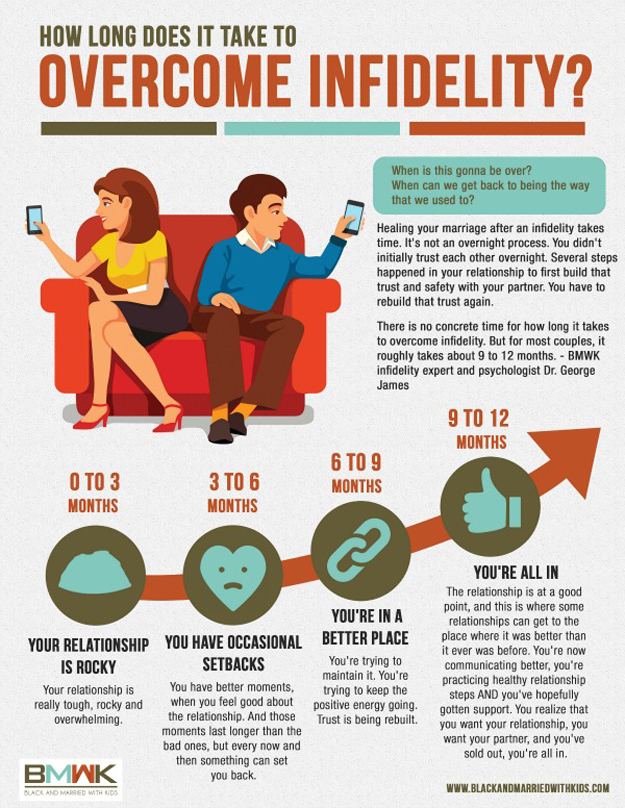
Often, people who engage in an affair will balk at the idea of sharing with their spouse their struggles with letting go of their lover. The most important point? To move ahead, Sam needs to actively hear and believe that Jennifer is choosing him and their marriage.
Realize that the “truth” rarely comes out all at once
This is a tough one. Those who have had an affair, whether they’ve been caught or whether they’ve actually come forward, rarely tell the whole story initially. In this case, Jennifer will either feel guilty and extremely protective of Sam, not wanting to hurt him anymore, or she’ll be protective of Anthony. Or both.
The latter reason may likely infuriate Sam. But it’s part of the process. The “story” usually emerges slowly, even though Sam might want the truth and all of the truth right away. Jennifer may not be able to do that. Remember, she’s now committed to the marriage and more than likely fears Sam’s reaction. That “too much too soon” may blow up in her face.
When this occurs, it’s very easy for the hurt partner to view this as more intentional deceit, which many betrayed people say is just as difficult to work through than any sexual or emotional indiscretion. The therapist needs to guide the couple carefully through the betrayer’s tangle of self-protection or protection of a lover and the defensiveness and shame that comes with it, as well as the betrayed’s desperately wanting and deserving “the absolute truth” and the sadness, rage, and fear that accompanies it.
All of this lies in the Atonement phase, which is a working through of anger, fear, guilt, and shame. It’s a tightrope that has to be walked very carefully, and with as much openness as possible.
The problems in the relationship did not cause the affair but are important to change
Jennifer is totally responsible for going outside the marriage to get her needs met. That is clear. But affairs happen in contexts. And that context is Jennifer and Sam’s marriage.
Sam and Jennifer will want to create a fresh, enlivened relationship where both can recommit and leave behind the relationship that was not working. The task is to learn new skills and new ways of communicating so both can feel better about their marriage. They’re not going back. They’re going forward. They’re starting marriage #2.
If Jennifer is adamant about blaming the marriage and only the marriage, that’s not a good sign. In Gottman terms, she’d be stuck in the barn with the Four Horseman Of The Apocalypse and not moving forward. The same would be evident if Sam insisted that the marriage had been great with absolutely nothing amiss or broken. Both would be locked in defensiveness and contempt.
Drs. John and Julie Gottman teach that talking about the context of the marriage doesn’t belong in the “Atonement” process, but belongs in the second “Attunement” phase of treatment. This may be easier said than done. I’ve found that as long as distinctions are being made, and very clear boundaries are formed—that nothing happened in the marriage to cause the betrayer to betray—that both can be discussed. However, it’s far better to keep them clear from one another, if possible.
However, it’s far better to keep them clear from one another, if possible.
Give structure to communication about the affair
Dr. Shirley Glass points out in her book “Not Just Friends” that the betrayed partner often fits criteria for Post-Traumatic Stress Disorder, with their emotional well-being heavily threatened and a sense of safety having disappeared from the marriage. It’s important to structure the sessions to help the betrayed work through that trauma, as slowly as is needed, and not amplify symptoms like hypervigilance, nightmares, or flashbacks.
And, in all seriousness, this process can’t happen quickly enough for the betrayer nor slow enough for the betrayed.
Jennifer’s job is evident. She must cut ties with Anthony. She needs to provide whatever information Sam needs to help him heal. Most people seem to want a lot of information, often coming in with pages of questions.
If Jennifer is reticent to proactively offer openness to what used to be more private choices (cell phone or social media account passwords, for example), that may be a signal that the hurtful impact of the affair is still not understood, or the betrayer has not fully taken responsibility. At that point, work directed at the betrayer, to try to understand their balking (whether it’s an issue still with the affair, or is it some other individual trait, such as a struggle with control) is vital for the therapeutic process to go forward.
At that point, work directed at the betrayer, to try to understand their balking (whether it’s an issue still with the affair, or is it some other individual trait, such as a struggle with control) is vital for the therapeutic process to go forward.
It is best if the couple can wait and only talk about the affair in the therapist’s office. But some people just can’t wait, so we would suggest that they limit, perhaps even by strictly scheduling, the time that they talk about it. Each would need to agree that they will refrain from using the four horsemen during those conversations. This structure helps prevent emotional explosions or from the affair gaining any more power than it already has, while also honoring the need for healing.
The affair will be on everyone’s mind. But it’s got to be fenced in to some degree. You are looking for new information to use for recommitment.
People in Sam’s role can sometimes get lost in the details, wanting to know everything about the affair.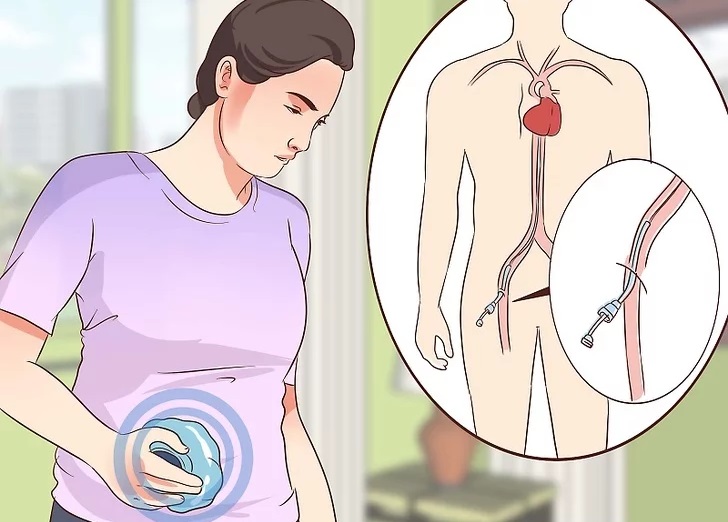 For example, asking if Jennifer loved Anthony, or why she was attracted to him, may be important details for Sam to know. But Drs. John and Julie Gottman would suggest that he, and others like him, need to be careful, again recalling Dr. Glass’ admonitions concerning PTSD. He runs the risk of becoming re-traumatized by the revelation of intimate details, such as where the affair happened and what the sex was like. He can become obsessive, requesting too much information. Yet if not enough is asked and absorbed, it can lead to later regret.
For example, asking if Jennifer loved Anthony, or why she was attracted to him, may be important details for Sam to know. But Drs. John and Julie Gottman would suggest that he, and others like him, need to be careful, again recalling Dr. Glass’ admonitions concerning PTSD. He runs the risk of becoming re-traumatized by the revelation of intimate details, such as where the affair happened and what the sex was like. He can become obsessive, requesting too much information. Yet if not enough is asked and absorbed, it can lead to later regret.
What’s the goal here? Sam finally says to himself, “You know, I just don’t need to ask that question. I’ve asked all I need to ask. I’m okay with not knowing.”
Realize the need for trust travels in both directions
The last thing that Jennifer wants to realize is that 10 or 15 years down the road, Sam says, “You know, I never really forgave you for that affair. I want a divorce.” Or he might never say those words, and simply act it out passive-aggressively.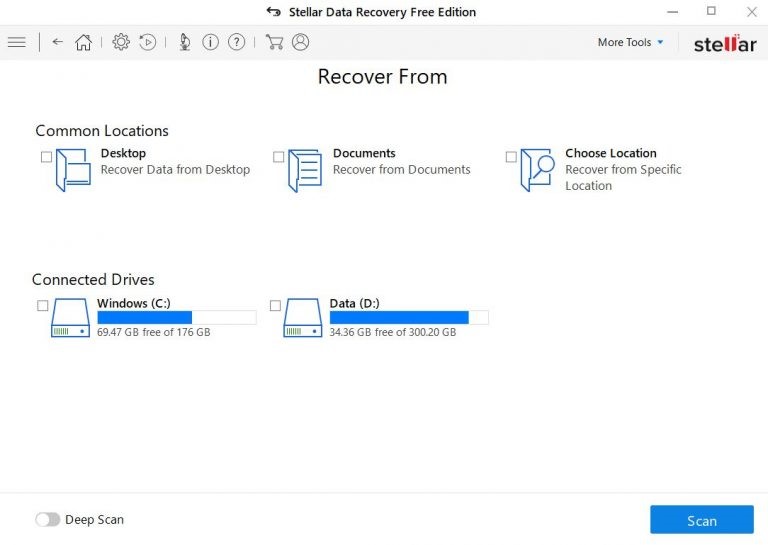
That is very sad. Couples have come to me years after doing therapy for an affair. There has been no true stage of reconciliation that Drs. John and Julie Gottman would call “Attachment.” The unforgiving spouse remains bitter, but may try to hide it. The unforgiven feels a loneliness that he or she doesn’t understand; it may be that everything “looks” fine, but underneath there is still distrust, blame, or anger.
Sam should take on the responsibility of giving reassurance to Jennifer that trust is building. He can say things sincerely, such as, “I wanted to text and ask you to take a picture of where you were at 10:00 last night when you were out of town, but I realized I didn’t need to. I’m past that.”
Jennifer can begin to feel hopeless if not given this information, or that her efforts are not being recognized. Both need to deeply understand and believe that the other is on board for a new commitment, that they both have chosen to remain, and are working on a new relationship dynamic that outshines their previous connection.
The process of healing from an affair takes time. Like all grief, it comes in waves. One day, it will seem like it happened a long time ago. The next? Either Jennifer or Sam can get triggered, and emotions will feel once again very raw.
Learning new skills of communicating about conflict, rebuilding trust, rekindling physical and sexual connection, giving time and attention to how the problems have affected the children or other family members. All of that can happen with time and energy.
There are many variations to the above. Such are the complications of being human.
The good news? It can be accomplished, and the commitment can be richer than ever. Not because of the affair, but because of the work done to make marriage #2 better than marriage #1 ever was.
How can you know you’re in a happy relationship that’s both good for your health and everyone around you? Can such a thing be measured? It can! The Gottman Relationship Adviser, the world’s first complete relationship wellness tool for couples, takes the guesswork out of improving your relationship. Measure your relationship health with a research-based self-assessment, then receive a tailored digital relationship plan proven to heal and strengthen your connection.
Measure your relationship health with a research-based self-assessment, then receive a tailored digital relationship plan proven to heal and strengthen your connection.
For an in-depth analysis of your relationship health check out the Gottman Assessment, a virtual relationship evaluation tool for couples.
Take this free relationship quiz and find out how well you know your partner.
Has your relationship experienced a sexual or an emotional affair? The Gottman Institute is currently seeking couples for an international study on affair recovery. For more information, click here.
Dr. Margaret Rutherford
Dr. Margaret Rutherford, a clinical psychologist, has practiced for over twenty years in Fayetteville, Arkansas. Her work is found on her own website, as well as HuffPost, Psych Central, Psychology Today, The Mighty, and others. She’s the author of “Marriage Is Not For Chickens”, a perfect gift book on marriage, and hosts a weekly podcast, SelfWork with Dr. ="wpforms-"]
="wpforms-"]
How to recover from a broken relationship: 10 steps
It's not easy to go through the painful ending of a novel. You have to go through pain to get to peace and recover from a relationship. 10 steps to help you through this process.
We experience the pain of rejection when we hear the words: "I want to leave."
Even if we are the initiators of the break, it still hurts.
We feel a wave of sadness and guilt as we remember the time we had to say, "I'm sorry, but I don't want a relationship with you."
For me, the end of a romantic relationship feels almost like death because I put so much energy into the relationship.
Going through a breakup always requires going through the typical stages of sadness and loss.
You want to clear your mind of memories and clear every last bit of memory of his or her scent from your bed, sofa and clothes.
And yet. .. you can't. You still love this person.
.. you can't. You still love this person.
Or you think you love.
Or you think not.
You are no longer sure of anything.
How to recover from a relationship when you don't know what to do?
How to recover when you're not sure if you really want to?
How to recover when the heart does not want to give up?
You will never forget your ex-lover.
You will never stop loving him.
You will never be able to heal the wounds and scars he left on your heart.
But, if you don't take steps to recover from a relationship, you will forever be stuck at that painful point as the world keeps turning.
-
Confirm and accept the breakup.
Are you still talking and acting around your ex like nothing happened?
Do you not tell your friends and family about the breakup?
Do you feel a surge of jealousy when he posts pictures of his new love?
Do you constantly say to yourself: "Is this not the end yet?"
If so, you are probably still in denial about the breakup.
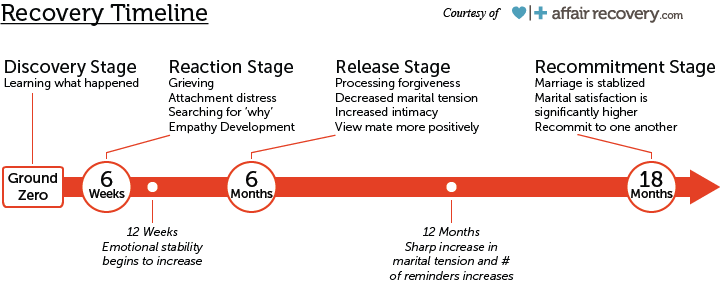
This is not bad in itself; after all, losing loved ones for any reason is grief, and denial is the first stage of grief .
However, in order to start recovering from a breakup, it's important that you accept that it happened.
Otherwise, the following steps will not help you move forward.
-
Disable and unfollow social networks.
Social networks are great when everything is in order in your life.
But they can also be a reminder of your heartache during recovery.
At least temporarily, you may need to disconnect from social media or exclude certain people from your mutual contact with your ex.
If you don't want to endure the pain of seeing his face and feeding on the pain every day, this is the step you need to take to rebuild your life.
-
Do not call or receive calls from your ex.
You need to set some firm boundaries and be clear (in a kind way) that you need to move on and your ex-lover needs to do the same.

If necessary, you can block SMS and calls.
Do your best to resist the urge to call or text your ex.
It's very hard when you feel so hurt and alone.
When you feel that desire, call a friend.
Don't try to rekindle a relationship out of guilt, loneliness, or insecurity.
These feelings are not the basis for a healthy relationship.
There was a reason why things didn't work out between you, and no matter how painful it was, you need to recover physically and emotionally .
-
Avoid moving into a new relationship for the sake of recovery.
Whether you want to do it to spite your ex or repair your broken heart, the desire to move into another relationship immediately arises.
Moving into a new relationship may seem easy and comfortable because of your pain and loneliness.
However, such a transition can do more harm than good if you have not fully recovered from the previous relationship.

Not only do you risk hurting your new partner with your conflicting feelings and behavior, but you may also regret by further complicating your emotions .
The recovery process is the perfect time to reunite with friends and family who can support you through your grief and help you feel not alone.
Start a new romance when you feel strong, safe and ready for love again.
Read also
Live in the moment! This video explains why
How to stop being shy? 6 Proven Ways
-
Don't forget to take care of yourself.
You can cry your eyes out. You can scream until your throat hurts.
Or perhaps you will feel as if you are being twisted and you are leaving the world.
But in your sorrow and pain, be kind to yourself, do not neglect your health due to a broken relationship.

You may not be able to control how you feel, but you can control what you do.
And in this painful time, it is more important than ever to stay physically healthy.
Jump out of bed as soon as you wake up.
Prepare a healthy breakfast despite your busy schedule.
Walk or even run to work.
If you feel good physically, it will be easier for you to recover mentally, emotionally and psychologically .
-
Revisit your old hobbies and develop new ones.
What hobbies did you enjoy before you met your former lover?
Maybe it's sports, knitting or reading books .
Try to revive this hobby, even if you have to make some effort at first.
You will find that it relieves your aching heart a little.
Distraction is an excellent antidote to psychological suffering.
You can also take up a new hobby.

Visit a place you've never been before, cook a dish you've never tried, or just do something new that requires a little attention to take the attention away from your ex and help you recover from your relationship.
-
Look to the future with a different mindset.
When we part with a person, our mind tends to imagine "if" and "maybe" in a relationship that ended.
Instead of focusing on what could have been, change your thinking and think about what was not in your former loved one ?
Think of all your ex's bad habits.
Think about all the nasty things he said to you.
Think about how many times he made you put off your needs.
Now that you're free of all that, wouldn't you be better off without your ex?
Even if your ex broke up with you and you still love everything about him, remember that you deserve someone who reciprocates.
In order to recover from a relationship, start looking forward to finding someone who is the best match for you and who appreciates all your amazing qualities.

Read also
The power of the word "No" - Why you should refuse
Fear of rejection? 8 effective remedies
-
Forgive yourself.
Of course, there will be times when you will blame yourself for what happened.
And this complicates the process of recovery after a relationship.
Since it takes two people to tango, it's natural to assume that you did something wrong that contributed to the breakup.
Regardless of who is to blame for the breakup, happened what happened .
You cannot go back and erase what you have done (if you have done anything at all).
But because of what has happened, you can learn and gain experience and become a better person.
If you take the time to honestly think about your behavior and relationships, you will realize that every relationship provides an opportunity for personal growth and self-awareness .

Take what you have learned to improve yourself and your communication skills for the next person in your life.
-
Live in the present and look to the future.
After the breakup of a relationship, we can immerse ourselves in the memories of our past love and stay in them.
After all, we don't want to repeat our mistakes again in our future relationships, and we may want to restore our past relationships.
But there is a difference between gaining experience from your past relationships and thinking about it in an unhealthy way.
To have a future relationship at all, you must first look at the future and imagine life outside of your ex-lover .
Living in the past keeps you trapped in many ways.
Don't let the past spoil the present or prevent you from creating a joyful future.
Think of happy times before meeting your ex.
What helped you to rejoice then?
Can you still be happy with the same things now?
It may take some time to heal your pain and recover in order to find happiness again, but you need to make room for happiness and invite it into your life.

You can't do this if you're stuck in past memories.
-
Talk to someone who has been in a similar situation.
Most of your friends and adult family members have experienced painful breakups in their past.
These people can give you sound, helpful advice on how to move forward.
There will definitely be people who will tell you, "Just get over it" and "There are a lot of fish in the sea."
But somehow these words seem empty and useless when you are in the midst of pain and resentment, trying to recover from a relationship.
Try to find someone who will listen compassionately as you pour out your heart without judging or interrupting you.
Find someone who doesn't just tell you "Forget it," who doesn't treat you like a child or disabled, but who offers support during this difficult recovery period.
What if there is no such person?
Then you can use the Internet, various forums and chats to communicate.

Remember that your recovery matters to your future life.
Whichever way you choose, how you move on (or move at all) is up to you.
If the above steps don't work overnight, don't worry.
Relationship recovery happens at different rates for different people.
Be patient, kind, and compassionate towards yourself to get through this difficult time.
You will eventually recover from the breakup and find your way to happiness again.
“How to live after a holiday romance?”
It's time for vacations and resort adventures. Associate Professor of the Department of Conflictology of KNRTU-KHTI, psychologist Rimma Fedyaeva, in an article written for BUSINESS Online, talks about how to live after you have had a resort-beach affair and how you can protect yourself from it.
A CARE-FREE TRAVEL BOAT BORN FROM THE FOAM OF THE SEA CRASHES ON THE SHORE OF LIFE
A friend of mine recently asked me how to save a family after a holiday romance? I answered not at all as a psychologist, but simply in a philistine way, like an ordinary average woman: “Well, are there still such fools who, because of an affair on the side, can leave their families?” We laughed and everyone went about their business. And to confirm my innocence, I remembered an old film from Soviet times. Remember how the relationship of the heroes ended Lyudmila Gurchenko and Alexander Mikhailov in the most famous movie story about the holiday romance "Love and Doves"? After the modest hard worker Vasya Kuzyakin and the imposing personnel officer Raisa Zakharovna, having returned home, began to live together, there was no trace of the resort idyll. Somehow it immediately became clear that the characters are different, and the habits, and what seemed so romantic at sea, does not fit into ordinary life. This is how the carefree pleasure boat, born from the foam of sea holiday euphoria, crashed against the steep banks of everyday life with a crash. Alas, this movie story is almost always reflected in real life. Then some statistics lined up, which hardly anyone has ever clearly and conscientiously calculated. Then I suddenly realized that if a person can leave a family because of a resort-sanatorium-vacation romance, then the conditions and prerequisites for its collapse were in place even before this meeting, otherwise it’s really difficult to find another word other than “fool”.
And to confirm my innocence, I remembered an old film from Soviet times. Remember how the relationship of the heroes ended Lyudmila Gurchenko and Alexander Mikhailov in the most famous movie story about the holiday romance "Love and Doves"? After the modest hard worker Vasya Kuzyakin and the imposing personnel officer Raisa Zakharovna, having returned home, began to live together, there was no trace of the resort idyll. Somehow it immediately became clear that the characters are different, and the habits, and what seemed so romantic at sea, does not fit into ordinary life. This is how the carefree pleasure boat, born from the foam of sea holiday euphoria, crashed against the steep banks of everyday life with a crash. Alas, this movie story is almost always reflected in real life. Then some statistics lined up, which hardly anyone has ever clearly and conscientiously calculated. Then I suddenly realized that if a person can leave a family because of a resort-sanatorium-vacation romance, then the conditions and prerequisites for its collapse were in place even before this meeting, otherwise it’s really difficult to find another word other than “fool”. But still, if what they write and talk about happened - I fell in love, well, I didn’t calculate a little, well, I didn’t take into account that all the conditions that rest provides (readiness of the nervous system, thoughts, physical condition, relaxation of the sexual center in the head) have to fleeting novels, then what to do, how to behave after arriving in an ordinary environment with your family?
But still, if what they write and talk about happened - I fell in love, well, I didn’t calculate a little, well, I didn’t take into account that all the conditions that rest provides (readiness of the nervous system, thoughts, physical condition, relaxation of the sexual center in the head) have to fleeting novels, then what to do, how to behave after arriving in an ordinary environment with your family?
THE ONE WHO KNOWS TO STOP ON TIME WINS IN LIFE
which, of course, will violate the boundaries of what is permitted, will surely turn your head, and, God forbid, you will have to find out about everything close to and believing in us people. The statistics are as follows: only 10% of men are somehow serious about romance on vacation, when almost 90% of women are not just serious, but also “throw” about marriage.
As the poet said, morality is the knowledge of what is good and what is bad. But if you follow this knowledge, it often interferes with life and complicates existence. The law does not forbid adultery, but morality does. That's the whole point, that a morally stable person will not ask such questions, because he will not betray his loved ones and people he loves and go to deliberately immoral acts. But this is a philosophical reasoning, almost ideal. Anything happens in life, and a person is not always satisfied with what he has, how he lives. His natural energy requires new sensations, strong sensations, thrills, pleasant sensations, which he has not received for a long time in established, calm and not always healthy relationships. Therefore, morality may not coincide with the real needs of life. Sometimes it happens that a person understands what he thinks or acts immorally, but the reality of life and our desires may not coincide, so we will proceed from what has already happened, what we have already done, and think about how to get out of this situation whole and unscathed. Of course, it is important to make it a rule to relax together as a preventive measure against holiday romances, but every family has its own rules.
The law does not forbid adultery, but morality does. That's the whole point, that a morally stable person will not ask such questions, because he will not betray his loved ones and people he loves and go to deliberately immoral acts. But this is a philosophical reasoning, almost ideal. Anything happens in life, and a person is not always satisfied with what he has, how he lives. His natural energy requires new sensations, strong sensations, thrills, pleasant sensations, which he has not received for a long time in established, calm and not always healthy relationships. Therefore, morality may not coincide with the real needs of life. Sometimes it happens that a person understands what he thinks or acts immorally, but the reality of life and our desires may not coincide, so we will proceed from what has already happened, what we have already done, and think about how to get out of this situation whole and unscathed. Of course, it is important to make it a rule to relax together as a preventive measure against holiday romances, but every family has its own rules.-Step-3-Version-2.jpg/aid178527-v4-728px-Recover-from-a-Brain-Surgery-(Preteens)-Step-3-Version-2.jpg) Why (by the way, many psychologists advise) not to take a break from each other? Many people think that the most harmless of all possible ways to cheat on your partner is cheating in a sanatorium, resort, or just on vacation. Your prank might not have been recognized 15 years ago, or rather, it is unlikely that they would have been recognized, but today do not forget about social networks, mobile phones with applications, with programs that allow you to read all SMS messages in parallel, about acquaintances who ended up in a neighboring room, colleagues who also relax with you, etc. And I would not exclude the human factor as one of the obvious ones - a person changes in behavior after emotional shocks, and if you observe a sharp low mood, irritation, confusion, or, on the contrary, unusual high spirits (this usually happens if meetings are still coming up in the near future), then it’s worth considering that your half had a “beautiful” vacation without you.
Why (by the way, many psychologists advise) not to take a break from each other? Many people think that the most harmless of all possible ways to cheat on your partner is cheating in a sanatorium, resort, or just on vacation. Your prank might not have been recognized 15 years ago, or rather, it is unlikely that they would have been recognized, but today do not forget about social networks, mobile phones with applications, with programs that allow you to read all SMS messages in parallel, about acquaintances who ended up in a neighboring room, colleagues who also relax with you, etc. And I would not exclude the human factor as one of the obvious ones - a person changes in behavior after emotional shocks, and if you observe a sharp low mood, irritation, confusion, or, on the contrary, unusual high spirits (this usually happens if meetings are still coming up in the near future), then it’s worth considering that your half had a “beautiful” vacation without you.
IT IS POSSIBLE TO ABOUT POLITICS WITH A SMART WOMAN
Probably, they rarely get divorced because of holiday romances (I repeat, unless the prerequisites for divorce have developed before), at the same time, they do not benefit relations in the family go. Trust disappears, the deceived spouse becomes jealous, the spouses lose contact and cannot agree. Of course, over time, what happened can be forgiven and even forgotten. Psychologists often advise treating resort romances with humor as something not quite serious. Bad advice, or rather correct, but difficult to implement. Indeed, the likelihood that an affair on vacation will turn into something more is negligible, which means you should not worry about it. One way or another, but the wrong partner returned to the family, but does not even remember his adventure.
Trust disappears, the deceived spouse becomes jealous, the spouses lose contact and cannot agree. Of course, over time, what happened can be forgiven and even forgotten. Psychologists often advise treating resort romances with humor as something not quite serious. Bad advice, or rather correct, but difficult to implement. Indeed, the likelihood that an affair on vacation will turn into something more is negligible, which means you should not worry about it. One way or another, but the wrong partner returned to the family, but does not even remember his adventure.
But this is rather poor consolation......
In general, you can’t overestimate holiday romances — as a rule, it was just sex with cocktails, but I wouldn’t want to underestimate either: in the head of a loved one there is no your image, memories associated with another person. He really felt good, spent a carefree time in a passionate embrace. Well, if you take into account the statistics, then women can take everything that happened very seriously, and then just be annoying to their partner. How to be? What should be done immediately if what happened happened?
How to be? What should be done immediately if what happened happened?
First, remember that cheating, no matter what it is - resort, city, office or some other geographically, physically and territorially different - is still cheating, and it will be extremely unpleasant for your significant other (and the likelihood that that this news will become available to her or him if desired - almost 80%). Therefore, when communicating with a person you like, you need to immediately tell yourself stop. In life, the one who knows how to stop on time wins. Engage in leisure activities - walk in the fresh air, take treatment, meditate, listen to the sea, communicate in order to get to know people, and save sexual energy for a dear person. You know, there is such an expression among sexologists: "Turn off the sexual center in the head."
Secondly, if an acquaintance has already happened, then you need to understand that your stories about your personal life have especially women and tame them. No need to tryndet about relatives and friends, talk about problems in relationships in the family. Weather, fashion, nature are the main topics for a romantic conversation; you can talk about politics with a smart woman. No need to sow hope for further serious relationships. In general, less illusions, more reality.
No need to tryndet about relatives and friends, talk about problems in relationships in the family. Weather, fashion, nature are the main topics for a romantic conversation; you can talk about politics with a smart woman. No need to sow hope for further serious relationships. In general, less illusions, more reality.
Thirdly, the aces of holiday romances say: "A romance without sex is time wasted" or "There was no sex - money wasted, the ticket was lost." If such a philosophy is close to you, then let the certificate from the KVD become an exciting factor for you. Let's not forget the statistics: there are almost 1 million HIV-infected people in Russia. In Kazan, the prevalence of HIV infection has reached the indicators of Moscow, and in the republic three to four people are infected with AIDS every day. It will be not only insulting, but also disgusting from all the romanticism, and explaining to your other half the need for treatment can also be a difficult task.
DO NOT TALK ABOUT CHEATING IN DETAILS
Next, remember that a holiday romance can have only four options: when he and she are married or single, when one of them is free and the other is not. Each case has its own scenario, its own drama, and only when both are free, then the relationship of the two does not jeopardize someone's family life. It would seem that what is wrong with the holiday romance of those who have not yet found their soul mates? But today we are not talking about them. .
Each case has its own scenario, its own drama, and only when both are free, then the relationship of the two does not jeopardize someone's family life. It would seem that what is wrong with the holiday romance of those who have not yet found their soul mates? But today we are not talking about them. .
And how to be and how to behave after the arrival home of a married man in an ordinary situation? If everything worked out, then good. Then it's all about your morality and conscience. If not, then repentance should be sincere: for the upset caused, for the loss of peace, the suspicion that you sowed in your other half. There is no need to talk about betrayal in details, as venerable psychologists say. There were no witnesses during your intimate scenes, which is probably why you should not injure your loved ones. No - and that's it! Why do you need the truth if no one needs it. Reassure your half by the fact that you always and everywhere retain an inner need for fidelity, but the fact that the external behavior of your communication with the opposite sex could lead someone to think of others, it just seemed. I know cases from the everyday stories of my patients when they justify themselves by saying that they were drunk or it all happened by chance that you were taken advantage of. This is an attempt to shirk responsibility. It's not an accident that you just slipped on the street. If you were taken advantage of without a physiological reaction of a partner, then this is a different story and not our topic today, besides, it smacks of an article of the Criminal Code. For everything else, you are responsible. But talking and telling, confirming what happened, is not worth it. It hurts the heart of a loved one. Do not continue this psychological game, then prove it with deeds and life. Remember that the inner readiness to forgive does not come soon, it is impossible to forgive by an act of will. It will take a long time to live for an inner, conscious forgiveness to occur. Remember that even if the marriage is preserved, then the relationship becomes more formal, restrained, or, on the contrary, overly emotional and unequivocally unhealthy.
I know cases from the everyday stories of my patients when they justify themselves by saying that they were drunk or it all happened by chance that you were taken advantage of. This is an attempt to shirk responsibility. It's not an accident that you just slipped on the street. If you were taken advantage of without a physiological reaction of a partner, then this is a different story and not our topic today, besides, it smacks of an article of the Criminal Code. For everything else, you are responsible. But talking and telling, confirming what happened, is not worth it. It hurts the heart of a loved one. Do not continue this psychological game, then prove it with deeds and life. Remember that the inner readiness to forgive does not come soon, it is impossible to forgive by an act of will. It will take a long time to live for an inner, conscious forgiveness to occur. Remember that even if the marriage is preserved, then the relationship becomes more formal, restrained, or, on the contrary, overly emotional and unequivocally unhealthy. The injured party should remember: do not rush to take revenge, I do not know of a single case in which a person received reassurance from this. This action is destructive and does not carry any constructive. Forgiveness does not exactly smell here, but there are still difficulties with taking care of yourself. This is all primitive: I to you, you to me, we very quickly come to such a model of behavior, girlfriends-friends advise us to repay it in the same way, and when a person has true love, he will never exchange money, he will not look for a surrogate. The idea of a casual connection is, in my opinion, bad under any circumstances.
The injured party should remember: do not rush to take revenge, I do not know of a single case in which a person received reassurance from this. This action is destructive and does not carry any constructive. Forgiveness does not exactly smell here, but there are still difficulties with taking care of yourself. This is all primitive: I to you, you to me, we very quickly come to such a model of behavior, girlfriends-friends advise us to repay it in the same way, and when a person has true love, he will never exchange money, he will not look for a surrogate. The idea of a casual connection is, in my opinion, bad under any circumstances.
It's ideal when you say it and forget it, but that doesn't happen. Everything is much more complicated. I advise the injured party to use the psychological skill of self-care. Feel free to comfort yourself. This is an art and must be mastered. We must be able to learn to live in certain emotional states, in a state of anxiety, in a state of uncertainty, we must be able to support ourselves. As soon as stability in the family or at work leaves, there is an increased level of anxiety, and a person needs to learn how to comfort himself. Otherwise, anxiety will turn into suspicion, suspicion - into an attempt to control, which will cause certain reactions from the partner, tension in relationships and all kinds of health problems. It is important to be able to survive in difficult situations thanks to your favorite business, favorite work, friends, hobbies, sports, walks. Perhaps it is useful for both the culprit and the victim to go to the temple - this is spiritual consolation, and in this situation it is very effective: a person receives a spiritual core, he gains stamina, confidence that there are spiritual forces that will support him. Start working on yourself, and the guilty person must prove by deeds that he is ready to love and serve only his own and close person. Repentance is not only sincere repentance, but also an inner determination not to repeat the sin.
As soon as stability in the family or at work leaves, there is an increased level of anxiety, and a person needs to learn how to comfort himself. Otherwise, anxiety will turn into suspicion, suspicion - into an attempt to control, which will cause certain reactions from the partner, tension in relationships and all kinds of health problems. It is important to be able to survive in difficult situations thanks to your favorite business, favorite work, friends, hobbies, sports, walks. Perhaps it is useful for both the culprit and the victim to go to the temple - this is spiritual consolation, and in this situation it is very effective: a person receives a spiritual core, he gains stamina, confidence that there are spiritual forces that will support him. Start working on yourself, and the guilty person must prove by deeds that he is ready to love and serve only his own and close person. Repentance is not only sincere repentance, but also an inner determination not to repeat the sin.
If you don't want this situation to happen in your relationship, then don't control your loved ones too much, don't torment them with calls or interrogations. You need to be able to give freedom to your loved one. Sex beckons, it is a natural desire, the prohibition makes it a temptation. Know how to believe, support, be sincerely interested in things. Always be positive. Cheerful and positive people support good energy in relationships. Well, if, nevertheless, the holiday romance has turned one of your heads so much and you have been announced your departure, then you will let him (her) go. When someone behaves sacrificially, they are returned to. And here the main thing is that one found the strength to understand, to cope with his pride, while the other has the strength to generously forgive him. In this case, people then unite even stronger and continue their lives with the feeling that relationships should be cherished endlessly. Everyone is wrong. . Experience shows that the wise, generous and chaste behavior of one makes the other change his mind. He begins to appreciate him as his person, who, in difficult times, did not push him away, he understood.
You need to be able to give freedom to your loved one. Sex beckons, it is a natural desire, the prohibition makes it a temptation. Know how to believe, support, be sincerely interested in things. Always be positive. Cheerful and positive people support good energy in relationships. Well, if, nevertheless, the holiday romance has turned one of your heads so much and you have been announced your departure, then you will let him (her) go. When someone behaves sacrificially, they are returned to. And here the main thing is that one found the strength to understand, to cope with his pride, while the other has the strength to generously forgive him. In this case, people then unite even stronger and continue their lives with the feeling that relationships should be cherished endlessly. Everyone is wrong. . Experience shows that the wise, generous and chaste behavior of one makes the other change his mind. He begins to appreciate him as his person, who, in difficult times, did not push him away, he understood.
